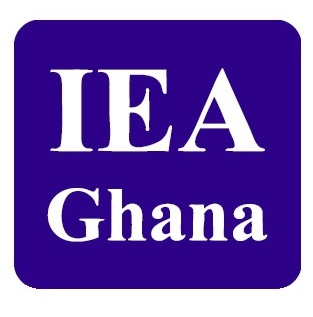Consider VAT; other domestic funds to sustain free SHS – IEA
 The Institute of Economic Affairs has urged the Government to revise its funding sources for the free Senior High School (SHS) by mobilising domestic revenue, including increasing the Value Added Tax Rate by one per cent, to ensure its sustainability.
The Institute of Economic Affairs has urged the Government to revise its funding sources for the free Senior High School (SHS) by mobilising domestic revenue, including increasing the Value Added Tax Rate by one per cent, to ensure its sustainability.
The Institute proposed that the one per cent VAT should be ring-fenced for the exclusive funding of the SHS Policy, explaining that domestic tax revenue provided a more stable and predictable source of financing expenditure for free education.
Speaking at a media briefing, in Accra, on the Institute’s views on the Nation’s Mid-Year Budget Review, Dr
Eric Osei-Assibey, and a Senior Adjunct Research Fellow at the IEA, also called for a national forum on how to ensure sustainable financing for the free SHS programme.
The National Budget for 2017 indicates funding for the policy to include GH¢188.28 million, which constitutes 47 per cent of Government funding and GH¢211.72 million, which comprises of 53 per cent from the Annual Budget Funding Amount (ABFA).
Dr Osei-Assibey noted that while the Funding arrangement could introduce another level of rigidity in the budgeting system, the ABFA source of funding, which contributed the major part of the total amount was not stable but highly volatile.
This, he explained, was due to dynamics in the oil and gas industry, which specifically related to fluctuating oil prices, posing risk to sustainable funding for the programme.
“IEA believes that successful implementation of the policy will not only ensure equity in the educational system but also have positive multiplier effect in all sectors of the economy through a skilled and competent work-force,” he added.
Dr Osei-Assibey said the Government had indicated its readiness to begin the implementation of the free SHS policy in September this year, stating that the free education programme was a major driver and catalyst for sustainable growth and development.
Touching on Fiscal Development, the Institute commended the Government’s commitment to fiscal consolidation and its efforts to ensure fiscal and debt sustainability, especially for aligning expenditures with realised revenues.
He said the overall fiscal deficit for the first half of the year was 2.7 per cent of Gross Domestic Product against a target of 3.5 per cent, while the year was expected to close at 6.3 per cent instead of the targeted 6.5 per cent.
Dr Osei-Assibey urged the Government to pursue a more aggressive domestic tax revenue mobilisation by ensuring that the compliance rate was increased substantially and the loopholes within the tax collection system were plucked.
Source: GNA
